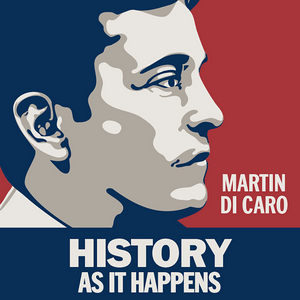Subscribe for early access, ad-free listening, and bonus content!
Editor's note: Shortly after this episode was published, news broke that Iran's Supreme Leader, the Ayatollah Ali Khamenei, was killed in an air strike.
Americans awoke on Saturday to learn their leaders, along with Israel, launched another unprovoked air attack against Iran. Unlike last June's 12-day-long war, President Donald Trump says the goal this time around is to topple the clerical regime in Tehran so the Iranian people can rise up. Historian Jeremi Suri, an expert on U.S. foreign policy, joins this special episode of History As It Happens to assess the start of another U.S. war of choice in the Greater Middle East.
Historian Jeremi Suri teaches at the LBJ School of Public Affairs at the University of Texas at Austin. He co-hosts This is Democracy podcast and co-writes Democracy of Hope newsletter.


